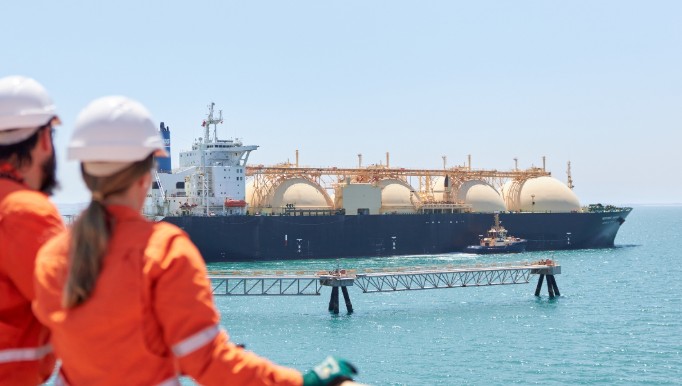This story requires a subscription
This includes a single user license.
Woodside said in a statement that the memorandum will see the three firms focus on advancing execution capability and extending their reach into priority LNG markets.
According to the Australian firm, the combination of Woodside’s success in LNG development, Hyundai Engineering’s extensive engineering, procurement, and construction experience, and Hyundai Glovis’s global shipping reach positions the frims to respond to growing LNG demand across Asia-Pacific markets and selected new regions.
Woodside executive VP and COO Mark Abbotsford said the company is “pleased to be deepening our longstanding relationship with Hyundai through this agreement.”
“We are confident the synergies and complementary strengths of our organisations will support the delivery of high-quality LNG solutions to meet growing global demand,” he said.
Moreover, Hyundai Engineering COO Myoung-Kun Son said this agreement allows Hyundai Engineering to broaden its global LNG experience by working alongside a “world-class LNG developer.”
“We are confident in our ability to add value across the full engineering spectrum and deliver integrated solutions for Woodside projects,” Son said.
Hyundai Glovis head of logistics business division Taewoo Kim said the company’s global shipping footprint and expertise “make us well-positioned to contribute to this strategic collaboration.”
LNG carrier charter
Last year, Hyundai Samho delivered the 174,000-cbm LNG carrier, Woodside Scarlet Ibis, to compatriot shipowner Hyundai Glovis and charterer Woodside.
Named after the national bird of Trinidad and Tobago, the LNG carrier made its first call at Woodside’s Pluto LNG terminal in Western Australia, which is currently being expanded with a second train.
Back in April 2022, Hyundai Glovis and Woodside signed a charter deal for one newbuild LNG carrier for a period of 10 years.
The charter deal also includes an option for additional five years.
Prior to the charter announcement, Hyundai Glovis ordered the vessel at Hyundai Samho for about $218 million.
With this deal, the South Korean operator of a large PCTC fleet and the shipping unit of Hyundai Motor Group entered the LNG transportation business.

